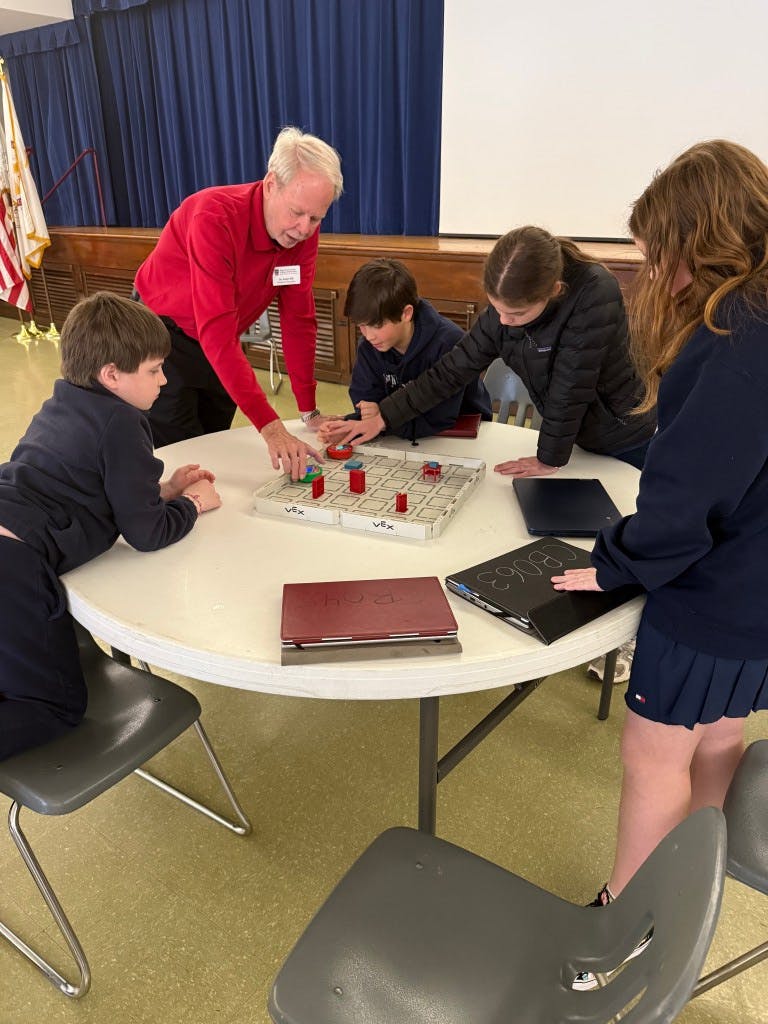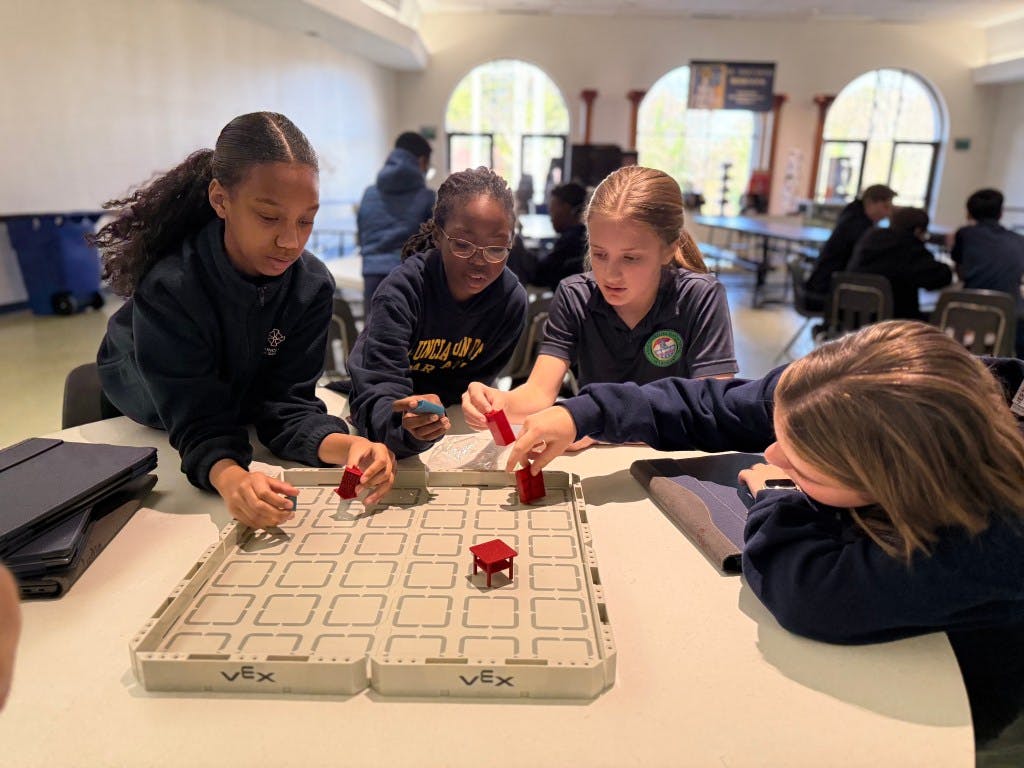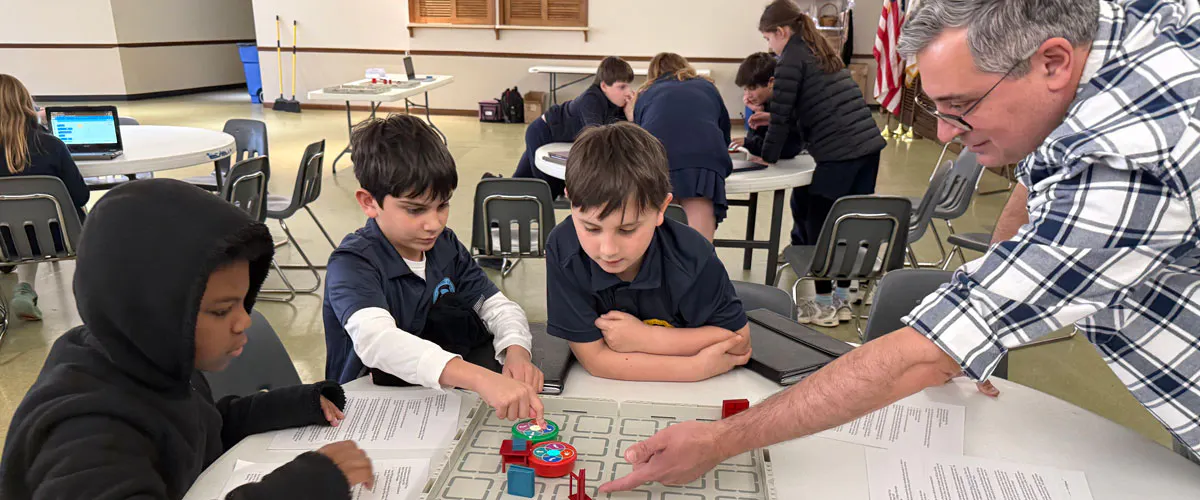In a classroom full of eager students are several square grids and a scattering of 3D printed furniture sets.
Groups of students in grades 4-8 are focused on the challenge set before them: a hands-on robotics activity fused with storytelling and coding.
Professor Roger Hill and clinical professor Petros Panaou in the Mary Frances Early College of Education recently led a robotics workshop for elementary and middle grades students at Annunciation Day School in Atlanta, interweaving literature and Greek culture with the foundations of science, technology, engineering, and mathematics (STEM).

“The students were engaged when we moved to block-based coding,” said Hill, head of the Department of Mathematics, Science, and Social Studies Education and a professor in the Department of Workforce Education and Instructional Technology. “It was a bit more intriguing to them than the push-button function of the robot, and they saw some more possibilities with coding.”
Although focused on STEM, Hill wanted the workshops to connect with students on a deeper level and invited Panaou to create a back story for the activity.
At the beginning of the workshops—which were split into three 90-minute sessions—Panaou read an excerpt from his award-winning children’s book, “Operation Logos: The Cell Phone Mystery,” which follows a young boy on a mysterious journey and is written in Greek.
The passage not only provided students with the activity’s goal—to maneuver their robot across a square board or “library” in search for a mysterious item—but it also offered an opportunity for many of the school’s Greek-speaking students to engage in literacy and language.
Together, they used context clues from the passage to uncover the book’s genre and to translate the book’s title from Greek to English.
“What makes an even stronger connection between the book and technology aspect of the activity is that this is science fiction, so it has to do with science and technology, and its importance in our lives,” said Panaou, who teaches in the Department of Language and Literacy Education. “I also read them the translated version, and that led to the activity with the robots.”
In the story is a hidden device—a mysterious old cell phone in a library. Students were asked to program their robots to find this device on a square matrix, a stand-in for the library in the book.
After maneuvering the robots around miniature desks and bookcases on the board, the students found the device hidden in a book, just like the character.

The coding process began with simple commands: coding the robot using directional buttons to move forward a few steps, turn, and then continue to the next location.
As the activity progressed, they moved to more complex coding using Scratch—a block-based coding language—on their Chromebooks. While dragging and dropping blocks of code, students could experiment and see the robots move in real time.
“Our students at Annunciation Day School thoroughly enjoyed the visit from the team from UGA,” said middle school teacher Matthew Barker. “They are extremely excited about technology, and the robotics workshop provided them a wonderful opportunity to understand the concepts and practice of coding to control technology.”
The sessions not only introduced robots and coding to young learners but also connected Hill and Panaou with the students and their families as they learned more about their own work as faculty members of the College as well as other opportunities available at UGA.
“The school was very interested in having their students introduced not only to STEM, but also UGA as a whole,” said Hill. “And so, another facet of this was two professors from UGA sharing a little bit about the University.”
After the session, Panaou dedicated his book to the students and added a copy of “Operation Logos” to the school’s library.
“Our students left excited to learn more about how the technology they use every day actually comes to work,” said Barker. “We would like to thank the whole team who made the visit remarkable, and especially professor Petros Panaou, who made a special connection with our students through the Greek language.”
